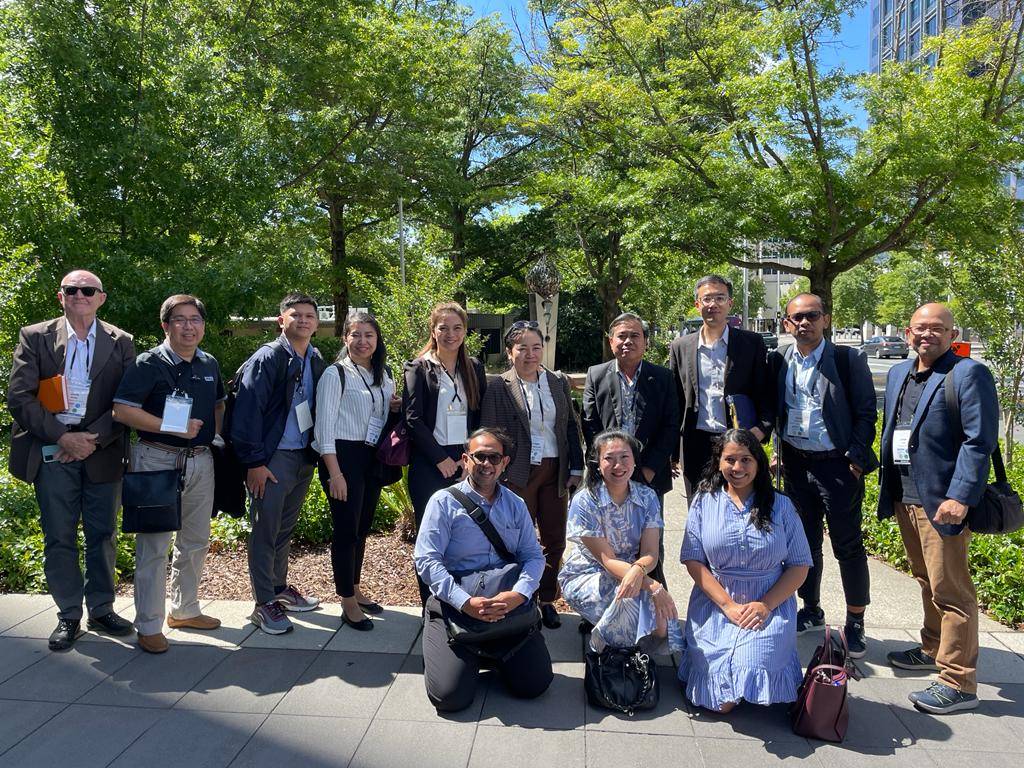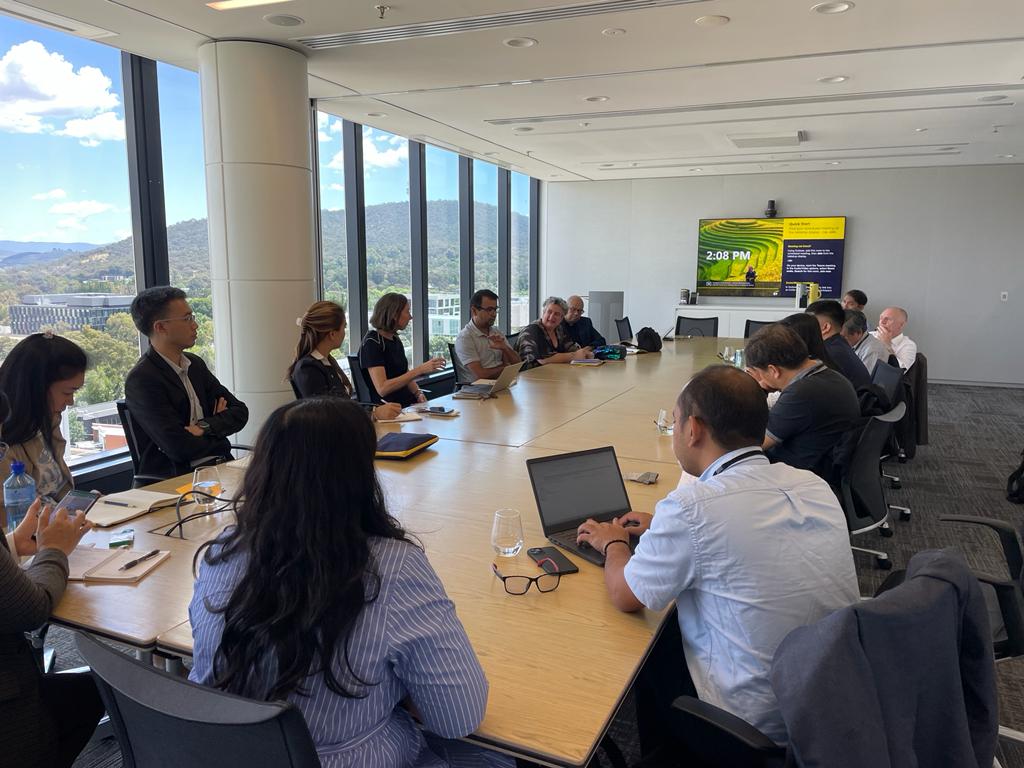Canberra, 8 – 10 February 2023
Beni Suryadi, ACCEPT II Program Manager and Muhammad Shidiq, ACCEPT II Senior Research Analyst attended the first Australian conference on Hydrogen namely Australian Hydrogen Research Conference (AHRC) 2023 from 8-10 February 2023 in Canberra, Australia hosted by Australian National University (ANU).
ASEAN Centre for Energy through ASEAN Climate Change and Energy Project Phase II (ACCEPT II) has been invited to attend to the Australian Hydrogen Research Conference (AHRC) 2023 as part of capacity building for ASEAN Member States from Australian Government to increase public understanding and knowledge on hydrogen technology that Australian is currently working and researching on it. ACCEPT II team along with representatives from Lao PDR, Thailand and Philippines have joined the conference. The conference arrangement has been managed by Partnership for Infrastructure (P4I). P4I is supported by Australian Government to improve quality infrastructure development in Southeast Asia including energy infrastructure.
Before the conference day, ACCEPT II team along with Thailand, Lao PDR, Philippines, and P4I representatives had a time to visit four locations around Canberra to learn hydrogen research and its applications to real world. 1st site was Geoscience Australian where it is an Australian national research institute owned by Australian Government to conduct any research activities such as geology, geography, earth science, atmospheric science, etc. including blue hydrogen which involving Carbon Capture Utilization and Storage (CCUS) on the application. The Geoscience representatives welcomed the delegates and showed the laboratories, sample storage and the research work.

ACCEPT II team with Thailand, Lao PDR and Philippine representatives during the AHRC 2023.
2nd site visit has been conducted to pilot scale research implementation on the hydrogen application to be blended with natural gas and its use for household scale gas stove. The pilot scale research is a joint-research collaboration between university and industry, namely Canberra Institute of Technology and Evo Energy. The project lead from Evo Energy has presented green hydrogen from solar PV as source of energy to be used in electrolyser to produce hydrogen. Next, hydrogen is blended with natural gas with 30% of hydrogen and 70% of natural gas. The mixed gas is then transported to household through an underground gas pipeline. The current research on blending 30:70 gases has been successfully conducted in pilot scale. As next planning, the research is currently on scaling up into non-pilot scale.
3rd site visit has come to Hydrogen Refueling Station (HRS) managed by actewAGL, as the first HRS provider in Australia despite it is still on pilot scale project. The HRS project lead of actewAGL has shown how the hydrogen is being produced from their electrolyser where the electricity is provided by renewable energy on-grid of Canberra city. The produced hydrogen was then distributed through an underground pipeline to be stored in hydrogen gas tube as storage. The hydrogen storage is then transported to hydrogen refueling station where a hydrogen fuel cell car can refuel the hydrogen from it. At this pilot scale, the HRS is only able to accommodate to refueling for car and it is not applicable yet for heavy duty vehicles purposes such as bus and truck. In Canberra, there are currently 20 hydrogen fuel cell cars across the city.

ACCEPT II team with Thailand, Lao PDR and Philippines representatives during the discussion with stakeholders in Canberra.
The 4th site visit has been on hydrogen laboratories under School of Chemistry and School of Engineering of Australian National University (ANU). In the school of chemistry, the school representatives showed delegates on selecting and optimizing catalyst to be used in electrolyser to increase hydrogen product. During the visit at school of engineering, they are testing on how scaling up hydrogen laboratory scale into a bigger scale as well as researching solar panel to catch more sunlight energy to increase hydrogen production from green hydrogen process.
Day after the site visit, the ACCEPT II along with ASEAN delegates have fully joined the conference. The conference has been organized as panel discussions, break out room session presentations as well as research poster presentations to showcase current hydrogen research from Australian universities. In the panel discussion, the presenters highlighted the current hydrogen research progress and achievements, challenges and opportunities of hydrogen, and way forward of hydrogen production, storage, and distribution / transportation in Australia. In the breakout room session, the host divided four different types of breakout room based on hydrogen production, hydrogen storage, hydrogen distribution and transportation and cross-cutting sector of hydrogen applications. The main ballroom of conference has showcased around 30 posters from researchers across Australia to showcase and present their current hydrogen research.
During the site visit and the conference, ACCEPT II teams have learned much on the current RDD&D of hydrogen research and technology in Australia. As a takeaway, these lessons are very useful and benefit for ASEAN on how to see hydrogen opportunities, challenges and applications to the real world. These lessons can be used by the team on how strategizing ASEAN to move forward with hydrogen technology as one-way of decarbonization approaches in the region.
This visit is part of Australian Hydrogen Study Tour where the delegates have come also to Brisbane and Melbourne.
Reportage on the Brisbane visit can be accessed here
Reportage on the Melbourne visit can be accessed here